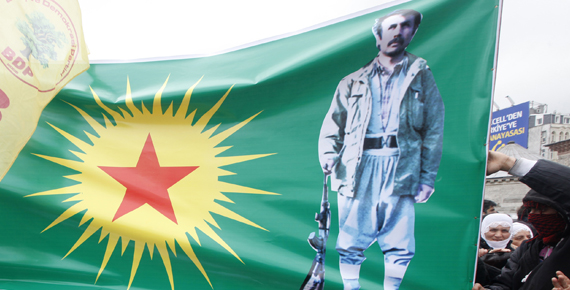An intense debate on the Kurdish issue has been going on not only in Turkey but throughout the region as well since the early 1990s. This debate bears great resemblance to the discussions that took place in the process of constructing the Sykes-Picot agreement almost a hundred years ago. For nearly a century, we have been unable to free ourselves from the political vortex in which the Sykes-Picot order left us.
We need to understand that age-old Turkish, Arab and Persian political traditions in the region have history but are worn out. These old and tired traditions failed to counter even an essentially primitive and clumsy intervention like Sykes-Picot. Particularly over the past two decades, the Kurds have developed into an interesting political element and a source of opposition in the face of the century-old status quo. Consequently, it remains impossible to claim that the region’s main political elements and the Kurds – a young political movement – have not succeeded in creating a constructive political agenda. Such a situation could have been accounted for until the early 2000s, or the U.S. invasion of Iraq. However, it is clear that the post-2002 Middle East has new circumstances, and each actor’s ability to adapt to these will determine its future.
Today, new de facto balances of power are thriving in Turkey, Iraq and Syria, whereas a discussion of change seems inevitable in Iran – all countries with a notable Kurdish presence. A constructive relationship between the representatives of the region’s experienced political traditions must include the Kurds’ political approaches and social imagination. First and foremost, it is noteworthy that the Sykes-Picot order’s collapse does not necessarily mean a return to the pre-1910 period. Similarly, such a structural rupture is unlikely to produce more nation-states. These observations represent the existing situation independently of the expectations of Kurdish nationalists, who came onto the scene later. Ultimately, it doesn’t take a psychic to tell that ignoring the given political situation leads to nothing but blood and tears.
Turkey is home to the largest Kurdish population in the Middle East. If the country succeeds in building upon the transformation and democratization of the past decade by developing a shared effort with the young and dynamic Kurdish political tradition, boasting of a “new Middle East” would be warranted. At this point, scrutinizing legal borders leads us nowhere. However, political, economic and social integration that would render legal borders meaningless not only faces no obstructions but also represents the only realistic post-Sykes-Picot scenario.
For Turkey, the outlawed Kurdistan Workers’ Party’s (PKK) refusal to cease violence remains the sole obstacle standing before the democratization efforts mandated by the aforementioned debates. As long as the PKK continues its violent campaign, it will not only delay Turkey’s democratization but also create additional political costs for the broader Kurdish population by alienating them from the region. The process might end well if a new Kurdish political outlook emerges and notices that the PKK is the last guardian of Sykes-Picot.








